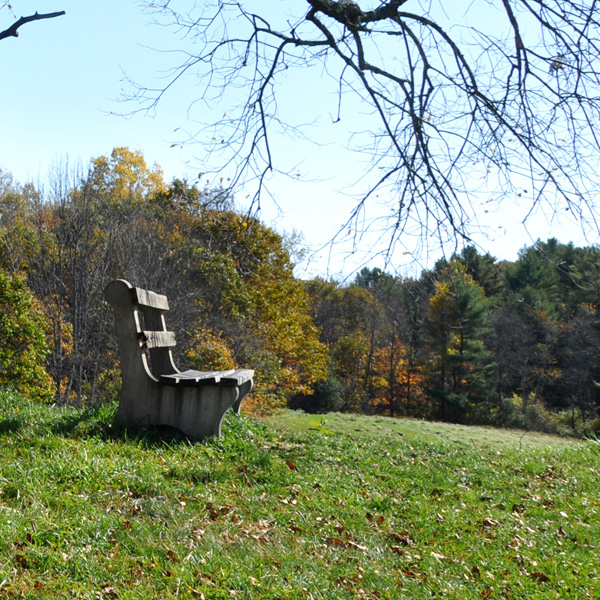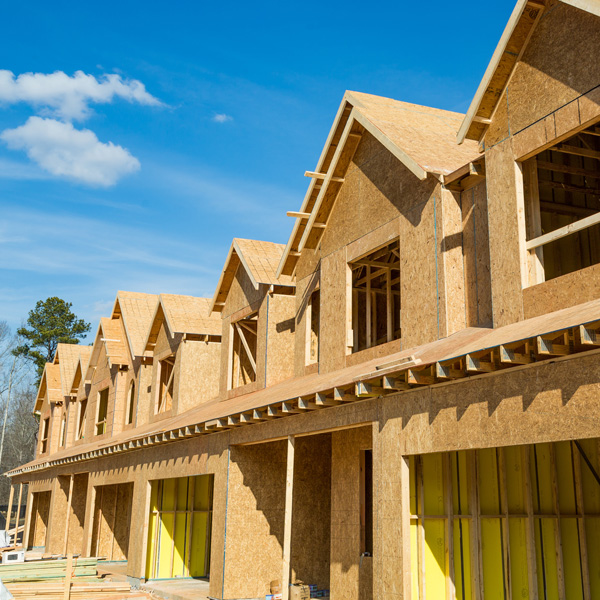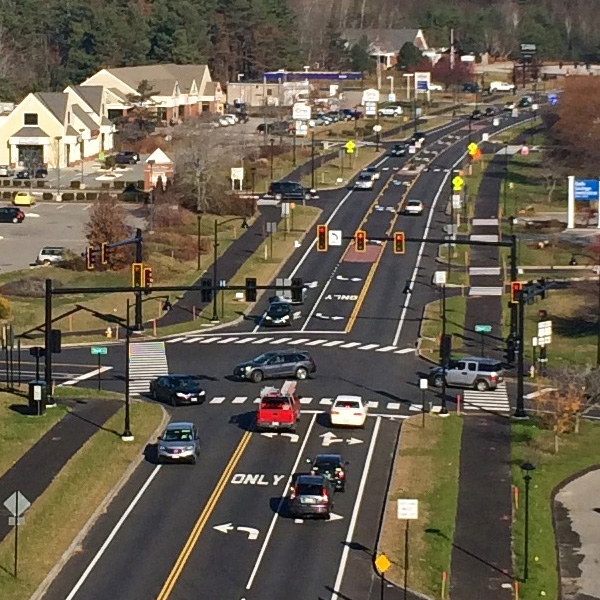



Housing affordability will ultimately dictate who lives in Falmouth. By providing a range of housing options, Falmouth could encourage diversity, allow young families and young professionals to be first-time home buyers in the Town, and provide the opportunity for single-family home dwellers to age in place as they downsize.

For more information about the Town of Falmouth Vision and Values project, please contact:
David Beurle, CEO
Future iQ
Phone: (612) 757-9190
david@future-iq.com
12 Comments
I am interested in looking at the Kennebunkport Heritage Housing Trust as a possible model for us to pursue. https://www.khht.org/
The fact that so many people are trying to escape the urban areas should be reason enough for wanting to keep Falmouth as a small rural community. We need to be cautious about falling for the notion that we can only be “good” citizens if we provide housing for all economic levels of Maine residents. There will always be people who work harder and aspire for higher-level housing. Falmouth happens to be a town that such aspiring people move to.
That being said, we first need to know how much affordable housing exists in Falmouth. If we do not know what we have, how can we possibly know what we need? Again, we need hard data, not macro trends
The notion that we can only keep the current level of excellence in our schools by dramatically increasing our population is flawed. Even the wealthiest homeowners barely provide enough property tax revenue to educate their children. Low-cost housing with correspondingly low taxes will only further stress the school budgets thus increasing the tax burden on the rest of Falmouth’s residents. This is a sure recipe for school failure.
An analysis of home sales in the latest non-Covid year (2019) revealed that 12 % of the homes sold met the Maine State requirements for affordable housing. A comparison of Falmouth’s affordable rental housing shows that we compare favorably with the average for towns adjoining Portland. We will never satisfy some groups of affordable housing advocates but in fact, we have nothing to be ashamed of.
With all due respect to Lee Hanchett, I couldn’t disagree more. The concept that our schools are excellent because we have no or little “low tax” base from affordable housing is flawed. Our schools can only benefit from the increased diversity that a greater percentage of affordable housing would likely bring. And if higher taxes result for some (myself likely included), so be it. The education of our youth is well worth it.
Similarly, the premise that a person or family can’t afford housing in Falmouth because he, she or they are not sufficiently aspiring is also flawed and, frankly, shows little appreciation or regard for the struggles of some of our fellow citizens.
I wholeheartedly support increasing affordable and attainable housing in Falmouth for all the reasons set forth above, but most importantly to encourage greater diversity in our largely homogeneous town.
I agree with you, Jesse, that our schools (children) can only benefit from the increased diversity. The more the better, and that housing costs are a drag on developing that diversity.
economics tells us that cost (affordability) is driven fundamentally by demand:supply. All gov can do is influence (some would say distort) via tax/regs: tax high/decrease supply to make more cost – or – subsidize (to give appearance of) or increase supply for less cost. That’s it. Do we really want more supply? a more crowded Falmouth. Do we really want the city subsidizing some people i.e. only city employees but not others? ..or building their own rent controlled units subsidized by higher taxes on everyone else?.. my view is we should control the quality & density – for the most live-able Falmouth possible but that inevitably creates demand and demand will drive up the prices. I don’t think we should chase low pricing as a single minded purpose and sacrifice Falmouth into a high density sprawl… in fact Maine is very affordable the further west one goes – and north. Falmouth can’t change it’s location so if not affordable the dynamic will move demand to less expensive areas which is a natural process and good for those areas.
Agree with James above. It is unrealistic for Falmouth to subsidize housing for lower income housing. Supply and demand will always keep Falmouth home values above other surrounding areas. Maintaining a “rural atmosphere” means limiting dense property developments. Maintaining a strongly financed school system is more important than “forcing” changes in the makeup of those who chose to live here.
MODERATOR COMMENT: It is great to see these conversational threads evolve.
These Discussions Boards are being moderated to match the stated guidelines: “Comments made via this portal are public. We expect conversations to follow the rules of polite discourse. Messages containing inappropriate content or language will be removed at the discretion of Future iQ”. To date, we have had to exclude a number of comments that are critical about people or groups, or are obviously off-purpose (unrelated political commentary; for example). PLEASE remember, these are open community conversations, to which a wide range of people are contributing – including school students. These Discussion Boards are an opportunity for thoughtful, polite and convivial community discussion focused on exploring specific important issues. Please consider ‘tone and content’ before submitting, as we will draw a clear line – and exclude – inappropriate messages. Thank you.
It is great to see so much activity around this topic. I thought I would add a few numbers I found really interesting.
2021
Falmouth median listing price for home (July 2021): $675,000
https://www.realtor.com/realestateandhomes-search/Falmouth_ME/overview
Income to afford a $600,000 home $184,575
Income to afford a $500,000 home $158,812
https://bundleloan.com/blog/600k-mortgage/
2020
Falmouth employee average salary $52,100
Falmouth employee median salary $52,457
https://govsalaries.com/salaries/ME/town-of-falmouth
2021
Falmouth 1st year teacher salary $43,458
Falmouth teacher with 10 years $63,014
https://maineea.org/2021-mea-salary-guide/
Average RN salary in
Portland/ South Portland $71,080
https://ceufast.com/nursesalaryguide/state/maine
I think that the two factions commenting on this page both have valid points. I agree completely with Jesse and Jennifer that we, as a community and school system, benefit when we have a more diverse population – racially, ethnically, socio-economically, and (dare-I-say-it) politically. That said, I also understand and agree with James’ points about about supply, demand, and location being detriments to affordable housing.
Let me try and thread the needle a bit here then – instead of focusing on building subsidized ‘affordable’ housing or building so many single-family homes that further take up Falmouth open space, how about we instead focus on more diverse type’s of housing along our main corridors (Rt. 1 and Rt. 100 primarily). Opening up parts of those corridors to some studio, 1-, and 2-bedroom apartments/condos would definitely provide housing at an affordable level but also wouldn’t take away from many of the things we all love about Falmouth.
Pam’s comment also really struck me because, as the parent of a 2 and 5-year-old, we are thinking about my children’s future with this process. I don’t want them to have to be a lawyer, banker, or surgeon to live in my community. If they want to be teachers, nurses, or firefighters, there should still be some places for them to live in Falmouth.
In order for children to have a better understanding of the world and for adults to be more tolerant despite their political, racial and socioeconomic differences, we need more diversity in our schools and in our neighborhoods. I am uncomfortable with zoning that would allow Falmouth to become even more exclusive than it already is and, based on the number of “Black Lives Matter” signs I’ve seen in our town, I think many residents agree. The answer doesn’t need to be construction of large developments of “subsidized” housing. There are techniques that other communities use: requiring developers to set aside a certain number of units for lower-income buyers, providing reasonably priced town-owned land so first-time buyers can find a home through Habitat for Humanity, and by providing financial incentives so developers will build — as Tom suggests — apartment-style housing on Route 1. According to recent news reports, Cape Elizabeth is now more willing to build lower-cost housing next to their Town Hall after negotiating with the developer over TIF funding. If Cape Elizabeth can be creative, why not us? We just need to make it a priority. We can also change our zoning to accommodate more duplexes and small multi-family units that cost less. Just because they would be more accessible, doesn’t mean they would be Section 8 housing.
Thank you to everyone who participated in this important focus group last night. I really appreciated hearing everyone’s point of view and look forward to continuing the conversation..
Growing up in Cape Elizabeth until the late 60s and really not thinking much about affordable housing, I now try to look back on those times. Like Falmouth, Cape has always had beautiful homes on the water, many homes elsewhere and good schools. Except for the kids attending private schools, my classmates ranged from the wealthy to those struggling to stay in town. Very close to the old high school was a housing development called Elizabeth Park. That neighborhood invited diversity with its many small clustered houses that were affordable. I assume Falmouth is looking to create neighborhoods to do the same.
In the early 70s, I purchased land and a house in Falmouth. This was a new town with its beautiful homes on the water, many homes elsewhere and good schools. Back then, the mixed income levels and home ownership just happened. There was plenty of land for growth.
Today, 50 years later, that mix doesn’t just happen. Today, Falmouth uses focus groups to learn more about housing affordability as well as shared community areas, green and open spaces. Large tracts of land have become those open spaces for all residents to enjoy. To me, that is lovely for those of us who can afford to live here today BUT what about HOUSING AFFORDABILITY? These huge tracts of land are gobbled up, making Falmouth even more exclusive and destroying the possibility for any affordable housing on that land FOREVER. Is that what we want ? Open space and affordable housing should exist jointly. In my opinion, the privilege to create exclusive open space in Falmouth should be granted only if it is balanced with serious, not token, affordable housing. Forget the $400,000 “affordable” condos. Building small houses, small duplexes, and small apartments that remain small, is a good way for the Town of Falmouth to prove that diversity does actually matter.
Thanks,
Paul Strout